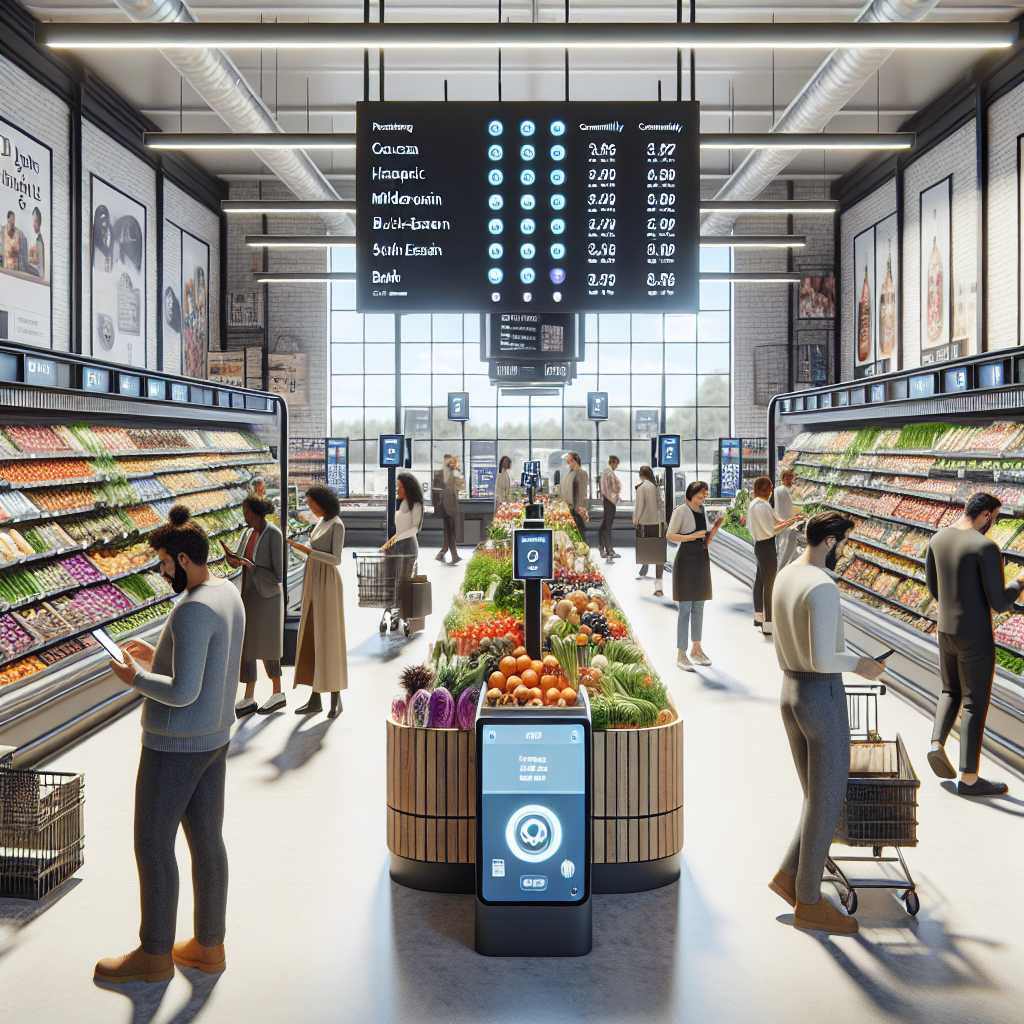Example Article
The Evolution of Asda: From Traditional Supermarket to Modern Retail Innovator
Asda has long been a staple of British retail, known primarily for its commitment to affordability and convenience. Founded in 1949 and growing steadily through the decades, Asda carved out a significant market share by focusing on value-driven offerings for everyday shoppers. However, the retail landscape has dramatically shifted over recent years, driven by technological advancements and changing consumer behaviours. In response, Asda has strategically evolved beyond its traditional supermarket roots to embrace innovation across multiple facets of its business.
By 2025, Asda has positioned itself as a hybrid retailer that blends physical stores with a robust online presence, catering to an increasingly digital-savvy customer base. This transformation includes investment in AI-driven supply chain management, contactless payment systems, and personalised shopping experiences both online and in-store. Such advancements have enabled Asda to maintain competitiveness against both legacy supermarkets and emerging e-commerce giants.
Moreover, Asda’s evolution is not solely technological but cultural. The company has placed renewed emphasis on sustainability and community engagement, reflecting broader societal shifts towards ethical consumption. This dual focus on innovation and social responsibility underlines Asda’s vision for the future: a retailer that stays relevant by adapting to modern demands while remaining rooted in the communities it serves.
Digital Transformation: Enhancing Customer Experience through Technology
In the digital age, retailers must harness technology to meet evolving consumer expectations. Asda’s digital transformation strategy centres on creating seamless omnichannel experiences that bridge online and offline shopping. The retailer’s app now integrates AI-powered features such as personalised promotions based on purchase history and predictive shopping lists that anticipate customer needs.
Additionally, Asda has expanded its home delivery network by leveraging data analytics to optimise logistics routes and reduce delivery times. This has been complemented by innovations like smart lockers at store locations, allowing customers to pick up orders at their convenience without queuing. These initiatives reflect a commitment to convenience and flexibility—key drivers of customer loyalty in today’s market.
Furthermore, Asda is experimenting with emerging technologies such as augmented reality (AR) to enhance product discovery within stores. Shoppers can use AR-enabled devices to access detailed product information or compare nutritional content instantly. Such forward-thinking applications not only enrich the shopping experience but also position Asda as a leader in retail tech adoption.
Sustainability and Ethical Practices: Building Trust with Conscious Consumers
Sustainability has become a cornerstone of modern retail strategy, and Asda recognises this as essential for long-term success. The company has committed to ambitious environmental goals, including reducing carbon emissions across its operations and increasing the use of renewable energy sources in stores and distribution centres.
Asda’s product sourcing policies have also undergone rigorous scrutiny to ensure ethical standards are upheld throughout the supply chain. Initiatives include partnerships with local farmers to promote sustainable agriculture practices and expanding ranges of plant-based products catering to the growing demand for environmentally friendly food options.
These efforts resonate strongly with consumers who are increasingly conscientious about their purchasing choices. By embedding sustainability into its core operations, Asda not only reduces its environmental footprint but also fosters deeper trust among customers who seek brands aligned with their values.
Community Engagement: Reinforcing Local Connections Amidst Global Expansion
Despite its scale as one of the UK’s largest supermarket chains, Asda remains deeply committed to supporting local communities. Through various charitable programmes and partnerships with food banks, the retailer addresses food insecurity while promoting social welfare.
Asda also encourages employee volunteering initiatives that strengthen ties between stores and neighbourhoods. This community-centric approach helps differentiate the brand in a competitive market by emphasising empathy and social responsibility beyond profit margins.
In an era where global retail giants often face criticism for detachment from local concerns, Asda’s focus on grassroots engagement acts as a powerful counterbalance. It underscores the importance of balancing growth ambitions with meaningful contributions to society.
Conclusion: Asda’s Strategic Positioning for a Resilient Future
Asda’s journey from a traditional supermarket chain to a forward-thinking retail powerhouse exemplifies adaptability in an ever-changing industry landscape. By embracing digital innovation, prioritising sustainability, and maintaining strong community connections, Asda is well-positioned to meet the challenges of 2025 and beyond.
The company’s balanced approach ensures it remains relevant not only through competitive pricing but also through values that resonate deeply with modern consumers. This multifaceted strategy highlights how legacy retailers can reinvent themselves without losing sight of their foundational principles.
Ultimately, Asda’s evolution offers valuable insights into how retail businesses can thrive by integrating technology, ethics, and empathy—ingredients essential for building lasting customer relationships in today’s dynamic marketplace.
Notes
- Asda serves over 18 million customers every week across the UK.
- The supermarket aims to achieve net zero carbon emissions by 2035.
- Over 60% of Asda’s fresh produce is sourced locally or regionally.
- Asda’s online grocery sales have grown by more than 40% year-on-year since 2020.

